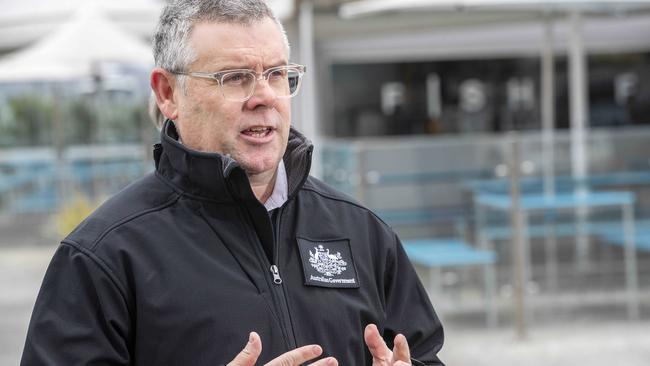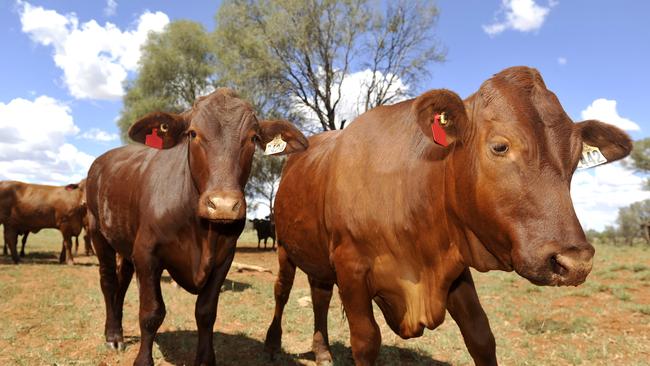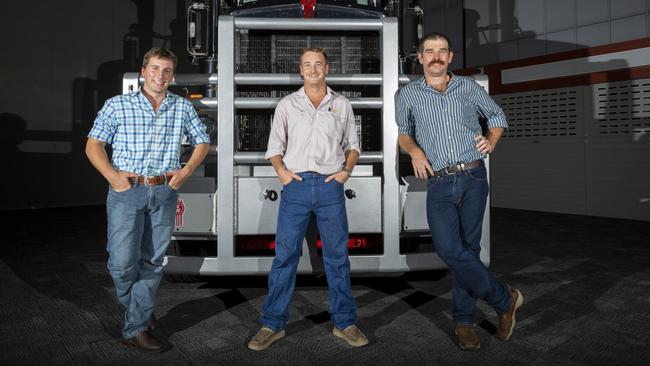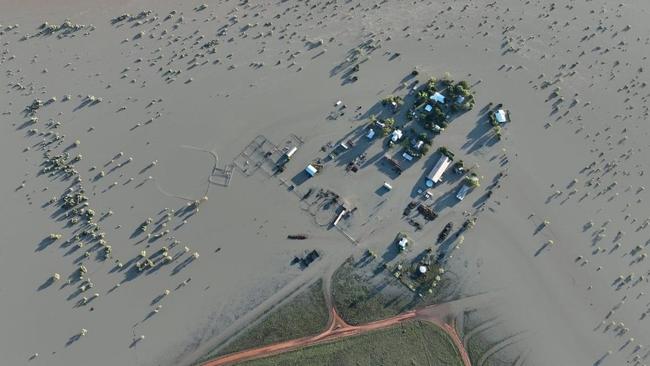New biosecurity measures to protect NT’s cattle industry announced at NTCA conference
Biosecurity threats, support for flood victims and the live export trade were hot topics at the annual NT Cattlemen’s Association conference in Darwin this week. Here’s what was announced.

Business
Don't miss out on the headlines from Business. Followed categories will be added to My News.
New biosecurity measures to help protect the Territory’s cattle industry were announced by federal Agriculture Minister Murray Watt in Darwin on Friday.
During his keynote speech at the Northern Territory Cattlemen’s Association conference, Mr Watt committed one million lumpy skin disease vaccines for Indonesia.
A $1m grant to help Indonesia boost its exotic animal disease testing capability was also announced, as the country continues to battle outbreaks of both lumpy skin and foot-and-mouth diseases.

Mr Watt said LSD and FMD presented the most significant threats to Australia’s biosecurity integrity in decades.
“Our proximity to neighbouring countries responding to these outbreaks means we need to take the threat seriously,” he said.
“This is one more way we are working to ensure our biosecurity system continues to protect the prosperity of our farmers, producers, and rural communities.”
Australia has never experienced an outbreak of LSD and also remains free from FMD.
Non-English speaking fruit and vegetable growers in the Darwin region will also be the target of a $235,400 partnership between the federal government and the Northern Territory Farmers’ Association.
Resources including videos, articles and websites translated into Cambodian and Vietnamese will aim to deliver culturally appropriate information to help growers identify and reduce biosecurity risks.

The NTCA conference attracted 800 industry delegates to the Darwin Convention Centre this week.
Many cattlemen were forced to arrive by helicopter as stations across the Territory remain cut-off due to widespread flooding in the Daly, Tiwi and Gregory districts over the past few months.
Mr Watt, who is also Emergency Services Minister, said the full impacts of the floods on the Territory’s $1bn livestock industry would likely remain unclear for a number of weeks, but there had been “some localised stock losses”.
“In the NT it’s going to be a little while before we have precise numbers.”
Mr Watt said losses in the Territory were not expected to be as severe as those caused by recent flooding in the Kimberly and northern Queensland.
While some disaster relief has already been rolled out, Mr Watt said the federal government would “consider” providing additional hardship support if a request was made by the Fyles government.

Mr Watt assured the Territory’s cattle industry live cattle exports would “absolutely not” be next on the chopping block, after the Albanese government last week doubled down on its commitment to ban live sheep exports in its next term.
“The Albanese government are very strong supporters of the live cattle export industry and we know that that’s a really crucial industry for the Northern Territory,” Mr Watt said.
Live cattle exports have fallen dramatically over the past two years as a result of the LSD and FMD outbreaks in Indonesia, and Mr Watt said the government was keen to see those numbers rebound.





